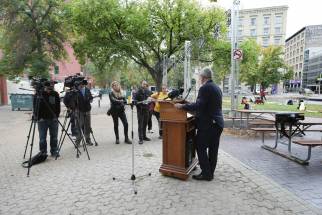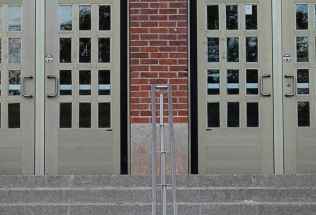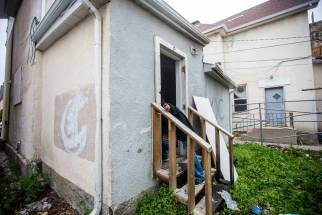Derelict property plan has potential
Read this article for free:
or
Already have an account? Log in here »
To continue reading, please subscribe:
Monthly Digital Subscription
$0 for the first 4 weeks*
- Enjoy unlimited reading on winnipegfreepress.com
- Read the E-Edition, our digital replica newspaper
- Access News Break, our award-winning app
- Play interactive puzzles
*No charge for 4 weeks then price increases to the regular rate of $19.00 plus GST every four weeks. Offer available to new and qualified returning subscribers only. Cancel any time.
Monthly Digital Subscription
$4.75/week*
- Enjoy unlimited reading on winnipegfreepress.com
- Read the E-Edition, our digital replica newspaper
- Access News Break, our award-winning app
- Play interactive puzzles
*Billed as $19 plus GST every four weeks. Cancel any time.
To continue reading, please subscribe:
Add Free Press access to your Brandon Sun subscription for only an additional
$1 for the first 4 weeks*
*Your next subscription payment will increase by $1.00 and you will be charged $16.99 plus GST for four weeks. After four weeks, your payment will increase to $23.99 plus GST every four weeks.
Read unlimited articles for free today:
or
Already have an account? Log in here »
Hey there, time traveller!
This article was published 23/09/2022 (1173 days ago), so information in it may no longer be current.
Mayoral candidate Jenny Motkaluk’s pledge to have the city seize derelict buildings and turn them into affordable housing may sound like a pipe dream. However, it is doable.
It’s just a lot more complicated than she suggests.
The City of Winnipeg has had the legal mechanism to seize such property since 2002, when it passed the Vacant and Derelict Buildings Bylaw. Taking title of derelict buildings without compensating the property owner (which is different than expropriating them for development, where owners are paid) is allowed under the City of Winnipeg Charter.
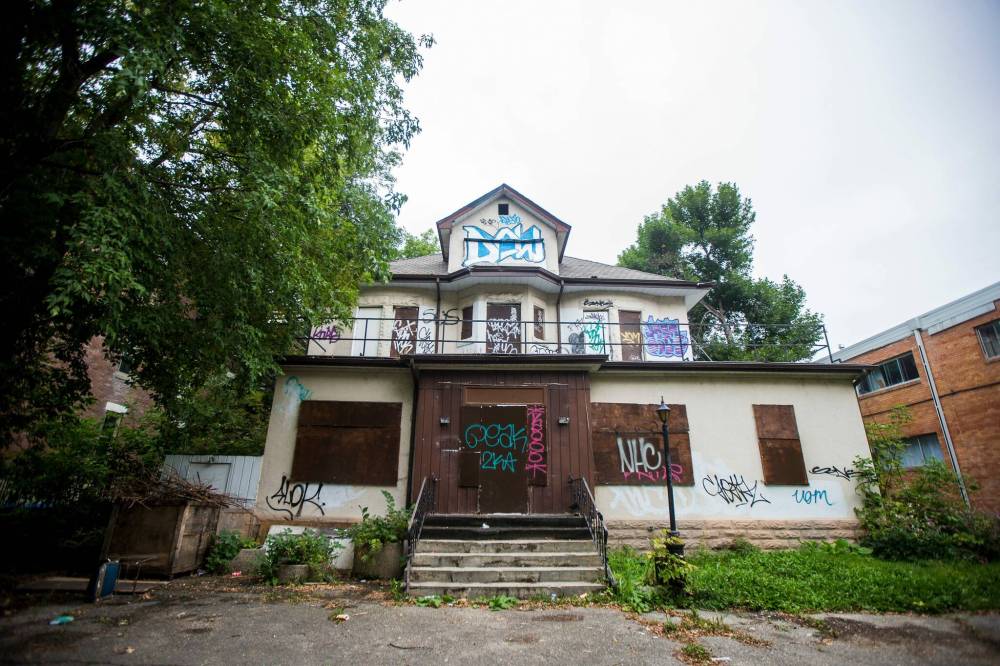
It’s considered a last resort. It allows the seizure of property if the owner repeatedly violates the city’s vacant building bylaw, such as refusing to properly secure it. However, it’s a long and cumbersome legal process, which is one of the reasons it’s seldom used.
The city has taken title of 16 properties under the process since 2010, when a new vacant building bylaw was enacted that included a speedier process.
There are other reasons why the city is slow to seize vacant buildings, including a lack of political will — which Motkaluk is quick to point out. There have also been legal challenges.
Then, there’s the money: the city collects millions of dollars a year from vacant buildings. Officials waste little time seizing properties from owners who don’t pay their property taxes. But as long as they’re paying, the city has little incentive to take action. (Empty, boarded-up buildings are also subject to additional fees.)
An average Winnipeg home assessed at $313,000 pays $1,900 in municipal property taxes and $273 in frontage levies per year, according to the 2022 budget.
If it’s vacant for a prolonged period, the city charges the property owner an “empty building fee,” equivalent to one per cent of the assessed value of the building (it doesn’t include land). If it’s boarded up, it must purchase a boarded building permit: $2,517 the first year with an annual increase.
Depending on the value of the building and how long it’s been shuttered, the average vacant, boarded-up building generates about $7,000 a year in taxes and fees.
There are 622 boarded-up buildings listed in the city. That’s more than $4 million a year in revenue, a windfall city hall is in no rush to give up.
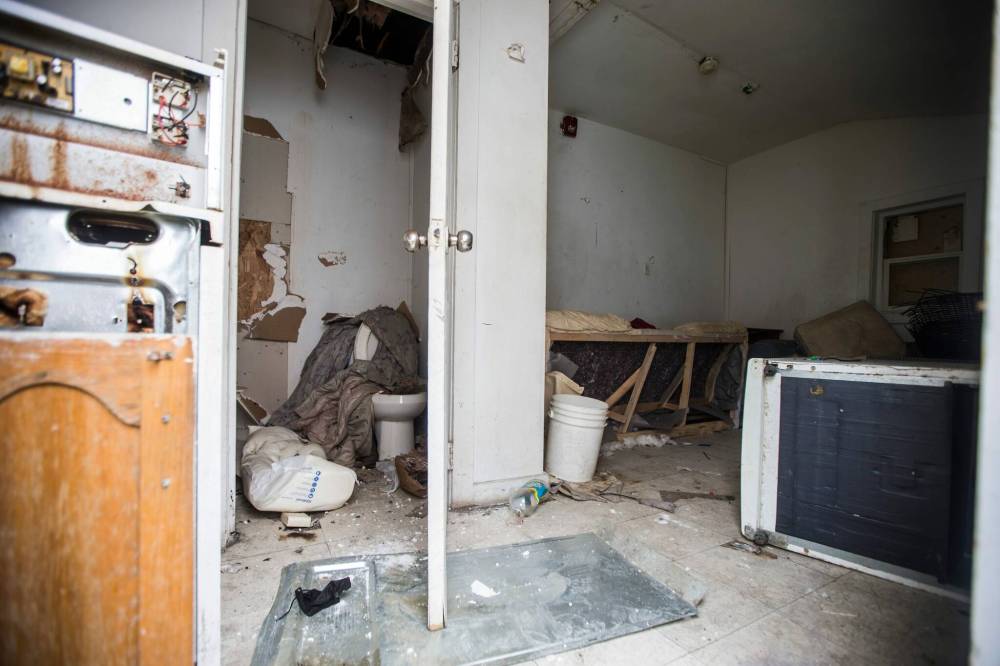
To seize a building, the property owner must first be convicted under the vacant building bylaw. That triggers a 10-month process (called “Take Title Without Compensation”), which includes several avenues of appeal.
Motkaluk says the city should seize all such properties and sell them to the highest bidders, under the condition they turn them into low-cost rentals.
“Turning vacant/derelict properties seized under the bylaw into affordable rentals means no one will be left to sleep in our streets, bus shelters, and riverbanks,” she said in a tweet Thursday touting the plan.
There are several challenges.
Some property owners have not been convicted under the bylaw and are not subject to the seizure process. They pay their taxes and fees and meet the bylaw’s minimum requirements.
Among those that can be confiscated, some have been vacant and neglected for years and can’t be refurbished. They’re tear-downs and would have to be demolished, with new structures built in their place. That’s doable, but it would have to make economic sense. One of the benefits of taking title without compensation is the property can be sold well-below market value, making it financially viable to buy and refurbish or build new.
Under Motkaluk’s plan, the question of how people dealing with homelessness would pay rent to occupy those spaces would have to be addressed. It could be done, with the right supports, but it’s not as simple as just handing the keys over.
Still, the potential upsides are huge: the number of derelict buildings could be significantly reduced, new housing would be created, and refurbished properties would generate long-term tax revenues.
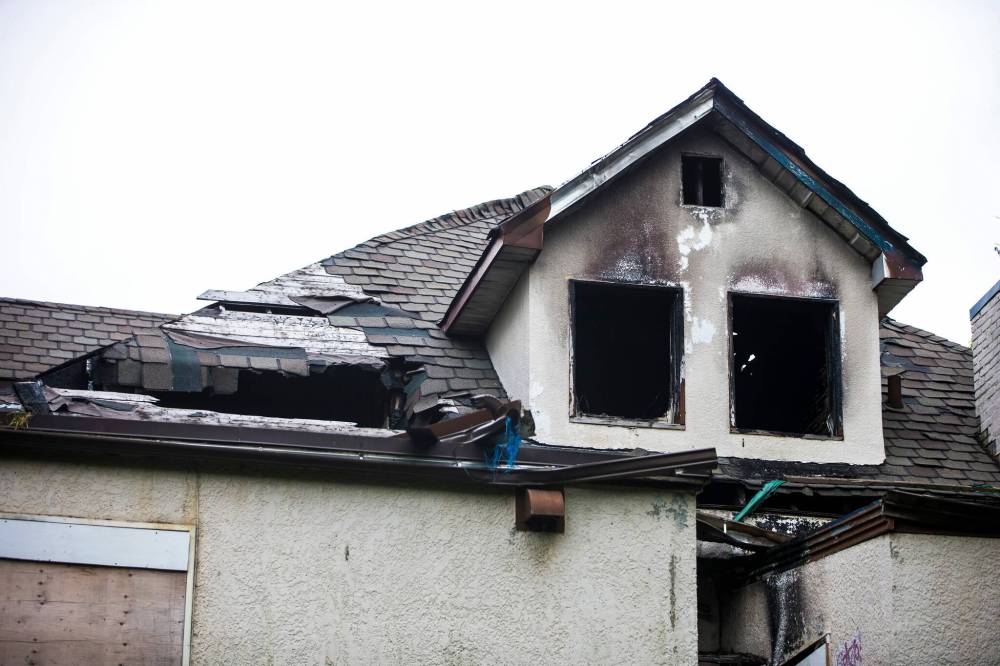
What the city should do, at the very least, is aggressively seize as many vacant properties as possible. Motkaluk is right when she says the political will to do so has been absent.
The city should also add new requirements to the vacant building bylaw (something suggested in a 2020 administrative report) to increase the potential for non-compliance and prosecution.
There are solutions to these problems. Motkaluk is on the right track.
tom.brodbeck@freepress.mb.ca

Tom has been covering Manitoba politics since the early 1990s and joined the Winnipeg Free Press news team in 2019.
Our newsroom depends on a growing audience of readers to power our journalism. If you are not a paid reader, please consider becoming a subscriber.
Our newsroom depends on its audience of readers to power our journalism. Thank you for your support.






